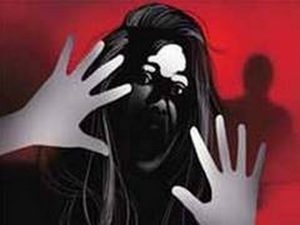London: ON 6th DECEMBER 2012 the presiding judge of Bangladesh’s International Crimes Tribunal, Mohammed Nizamul Huq, passed an order requiring two members of The Economist to appear before the court, demanding that they explain how we have come by e-mails and conversations between himself and Ahmed Ziauddin, a lawyer of Bangladeshi origins based in Belgium. The tribunal was established in 2010 to consider accusations of war crimes committed in 1971, during Bangladesh’s war of independence from Pakistan.The Economist has heard 17 hours of recorded telephone conversations and seen over 230 e-mails between the two men. This material is confidential and we are bound by law and the British press’s code of conduct not to reveal such information except in matters of the most serious public interest. We did not solicit the material, nor pay for it, nor commit ourselves to publish it.
These e-mails, if genuine, would indeed raise questions about the workings of the court and we are bound to investigate them as fully as we can. It was in the course of those investigations that we contacted the two men.
Our investigations are continuing. Once they are concluded and if we consider the allegations contained in them to have merit, we will publish them. Meanwhile, we are publishing a short account of our dealings with Mr Huq and Mr Ahmed. These, we believe, have a bearing both on the tribunal’s proceedings and on the order of December 6th.
Mr Huq is a Supreme Court judge and “chairman” of a trio of judges on the tribunal. There is no jury and the court can impose the death penalty. The verdict in its first case could come within days. Mr Ahmed is an expatriate Bangladeshi who is an academic specialising in international law who lives in Brussels. The two men have known each other for 25 years, as they were human-rights campaigners and Mr Ahmed’s late brother had been a student friend of the judge. Mr Ahmed is not just an international lawyer, he is also the director of the Bangladesh Centre for Genocide Studies in Belgium, which is dedicated to ending what he has called “the ingrained culture of impunity” surrounding the war crimes in Bangladesh.
The order includes a description of Mr Huq’s relationship with Mr Ahmed. It explains that the tribunal is based on “new law”, so the judges need to “take assistance of researchers from inside and outside the country”. It names Mr Ahmed as just such an expert. “During the proceedings of the trial and orders the Chairman also took assistance from him,” it says.
Speaking to The Economist in Brussels on December 4th, Mr Ahmed had said something similar, “It’s up to judges to decide where they are going to get research support or other support they need. They are quite entitled to do it. The more so when they really don’t have that research backup [in Bangladesh]. [They ask for help] if they feel if there are people more informed about the issue, especially where [international law] is so new in Bangladesh. I’m not really advising him, but if there is a question then I try to respond.”
But the characterisation in the order and from Mr Ahmed contradicts what the judge told us in a taped interview. On 5th December, the evening before the court issued its order, Mr Huq insisted that Mr Ahmed was not helping him. He admitted that they talk, but denied that he had a part in helping prepare documents or doing anything in any official capacity. He said that for anyone to play such a role would be quite wrong.
“As judges, we cannot take help from third person and outsiders,” Mr Huq said. Asked whether they sometimes exchange e-mails about the tribunal, he says “No, no, no, regarding tribunal, no talks regarding the judgment or regarding the proceedings, no.” “Later, he said, “A Supreme Court judge, we do not talk even with our wife regarding the tribunal.”
Judges generally have to be careful if they discuss cases with third parties, because to do so could lead to bias or the impression of that they have come under the influence of someone who has nothing to do with the proceedings.
In his interview in Brussels on the previous day, Mr Ahmed had likewise told us that he has “no relationship whatsoever” with court. He can send the judge messages if he wants—but “generally though I don’t,” he says, “he’s a judge after all.”
Several questions are raised by all this. On what bases did the judge select the experts who would help him? Why was Mr Ahmed’s role not revealed to the court and to the public until the tribunal order on 6th December, after we had contacted him? The order refers to the presiding judge of the tribunal “receiving the support [of Mr Ahmed] on the developments on International Criminal law throughout the world” and taking assistance “during the proceedings of the trial and orders”. Why then did he tell us on December 5th that the two men had had no talks regarding the tribunal or regarding the proceedings? And why did he say that it would not be appropriate for a Supreme Court judge to talk to others about the proceedings?



